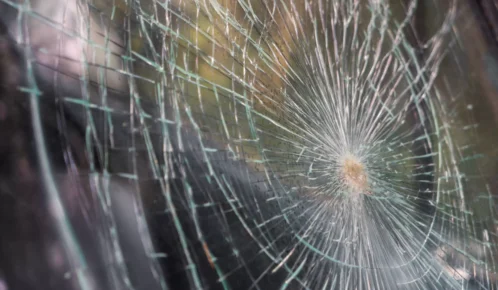Josh Rudolfi of Ankin Law secured a favorable settlement in arbitration for a sterile processing technician who injured her back while moving a full cart of surgical instruments. She injured her lower back while working in “decontamination”, which is where instruments are cleaned. The back injury occurred as she was pulling a heavy cartload of instruments out of an elevator. Even though she continued to work her regularly scheduled shifts she noted that she had back pain and stiffness that had started the day of the accident. She was sent for medical care a week later where the doctor reported tenderness over the lumbar spine and diminished lumbar range of motion.

In the decision the arbitrator ordered Steris Instrument Management Services to pay all reasonable and necessary medical services in the amount of $66,040.00. The sterile processing technician was also awarded temporary total disability benefits of $413.06/week for 22 weeks. In addition, 37.5 weeks of permanent partial disability benefits were awarded, at a rate of $371.76/week, because she had sustained a 7.5% loss of a person-as-a-whole.
(Read the Full Arbitrator Decision Here)
Below are some excerpts from the arbitrator’s decision that discuss the cause of the technician’s pain and whether or not the treatments she received were necessary:
F: Is Petitioner’s current condition of ill-being causally related to the accident?
The Arbitrator finds that Petitioner proved that her condition of ill-being is
causally related to her work accident on February 27, 2019.
The evidence clearly showed there was consensus among Petitioner’s healthcare providers and Respondent’s retained IME expert, Dr. M , that Petitioner sustained an injury to her low back that was causally related to her work accident. The dispute seems to be the nature and extent of that injury, which will be discussed below.
Dr. S of diagnosed back strain on March 4, 2019. The temporal relation to the work accident creates a reasonable inference of causal connection. Dr. diagnosed low back pain and lumbar radiculopathy which he found to be causally connected. PA-C M , under the auspices of Dr. J , assessed Petitioner’s injuries as lumbar facet syndrome, lumbar discogenic pain, and lumbar radiculopathy, which he found to be causally connected. Dr. M diagnosed a mild lumbar strain which he also
found was causally connected.
J: Were the medical services that were provided to Petitioner reasonable and necessary? Has Respondent paid all appropriate charges for all reasonable and necessary medical services?
The Arbitrator finds that Petitioner proved that the medical services provided and the charges for those services were reasonable and necessary to cure or relieve the effects of her injuries. This follows the finding that Petitioner proved causation.
Petitioner was first seen for her injuries at on March 4, 2019. She was diagnosed with back strain. She received physical therapy and medication for her symptoms and, also, work restrictions. Although she was not released by Dr. S , Petitioner sought care with Dr. X. Dr. X’s course of care did not provide the desired relief, so Petitioner was referred to Dr. J for pain management. Dr. J administered medial branch block injections and then radiofrequency ablations in Petitioner’s lumbar spine. Dr. J ’s interventions were successful in relieving Petitioner’s complaints to the point that she could return to full duty work.
However, Dr. M disputed the necessity of any medical care beyond 5 to 6 physical therapy sessions. Dr. M opined that Petitioner should have recovered from the mild lumbar strain he diagnosed even without treatment within 2 to 4 weeks. He found the April 1, 2019 lumbar MRI to be “100% normal.” Dr. M further opined that Dr. J ’s interventions were unnecessary in that they did not comport with the 2009 criteria of the American Pain Society. Dr. M also noted positive Waddell testing. The doctor did diagnose a mild lumbar strain but also diagnosed psychogenic pain/function overlay and symptom magnification.
The Arbitrator did not find Dr. M ’s opinions persuasive. He strongly disagreed with Dr. Me s interpretations of the April 1, 2019 lumbar MRI. Dr. Me made specific findings as noted above which Dr. M read as “100% normal.” The Arbitrator assumes Dr. Me is board-certified radiologist and notes Dr. M is a board-certified orthopedic surgeon. The Arbitrator defers to the physician whose sole specialty is interpreting radiologic imaging.
Dr. M also relied on a positive Waddell finding. Dr. M did not document his own finding of a positive Waddell sign. The only note regarding a positive Waddell sign was in the initial clinical note, which was nonspecific. Dr. M did not note the negative Waddells documented by PA-C M at . His failure to find a positive Waddell himself and disregarding the negatives at further detracts from the persuasiveness of his opinions.
Dr. M opined that Dr. J ’s administering of medial branch block injections and radiofrequency ablations did not comport with the 2009 Guidelines of the American Pain Society. Dr. M did not cite the particular guideline he relied on or include the relevant guideline in his report. Dr. M did not cite or rely on relevant guidelines, criteria, or protocols of professional medical specialties devoted to pain management: American Board of Anesthesiology, American Board of Pain Medicine, or American Board of Physical Medicine and Rehabilitation. The Arbitrator finds that Dr. M ’s reliance on the unstated guidelines of the American Pain Society does not support his opinion.
In that same vein, the Arbitrator does not find Dr. M ’s opinion regarding Dr. J ’s interventions persuasive for the fact that those interventions worked. Petitioner’s clinical presentation improved as a result of the injections and ablations. Her pain and limitations resolved to the point of MMI and a return to full duty work.
Therefore, the Arbitrator awards the following unpaid medical charges: $10,245.00 to Fitness Rehab, $14,889.00 to Pain Management Specialists, $36,197.00 to Interventional Pain Associates, and $4,709.00 to Anesthesia, Ltd., to be adjusted in accord with the Medical Fee Schedule as provided in §8.2 of the Act.



